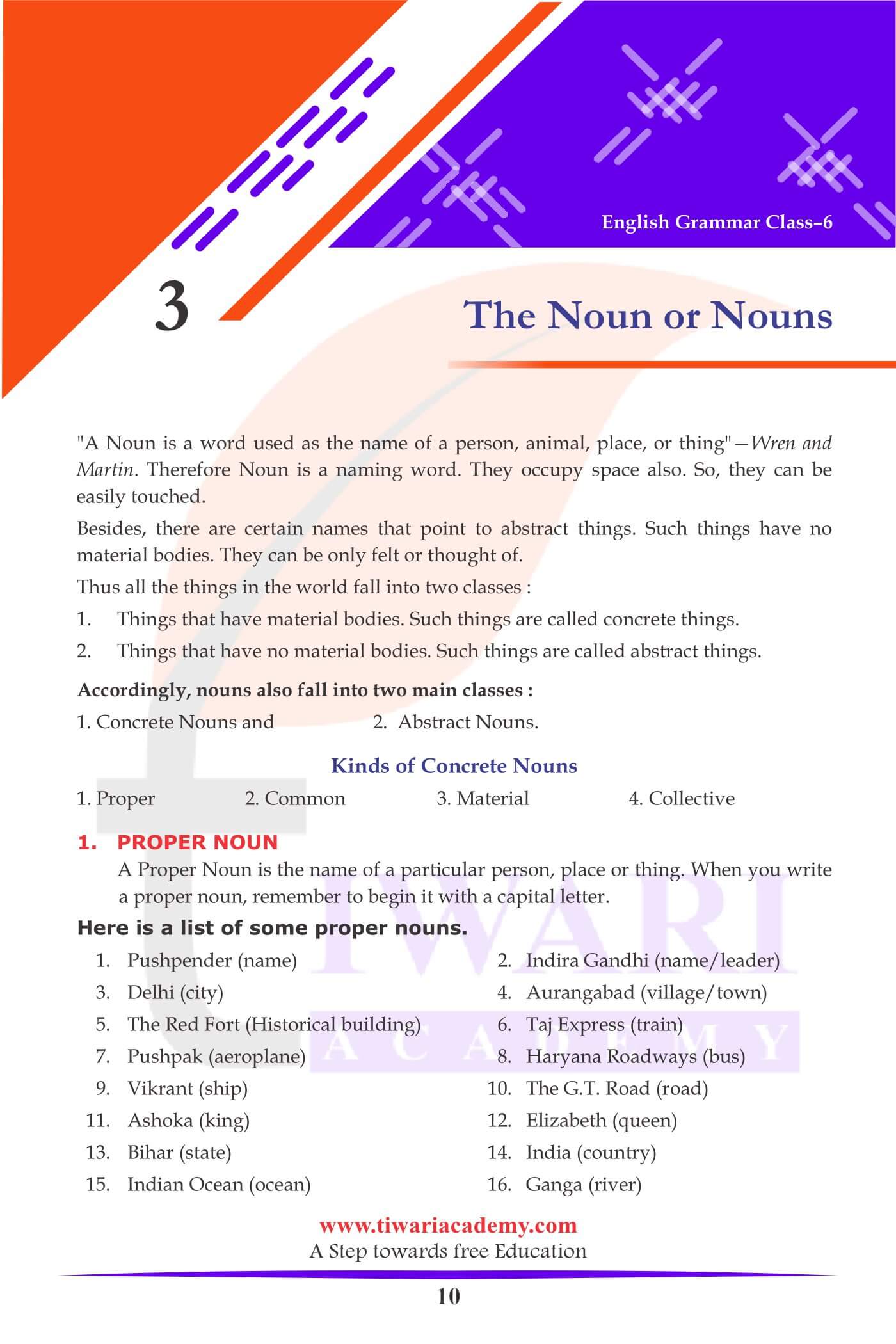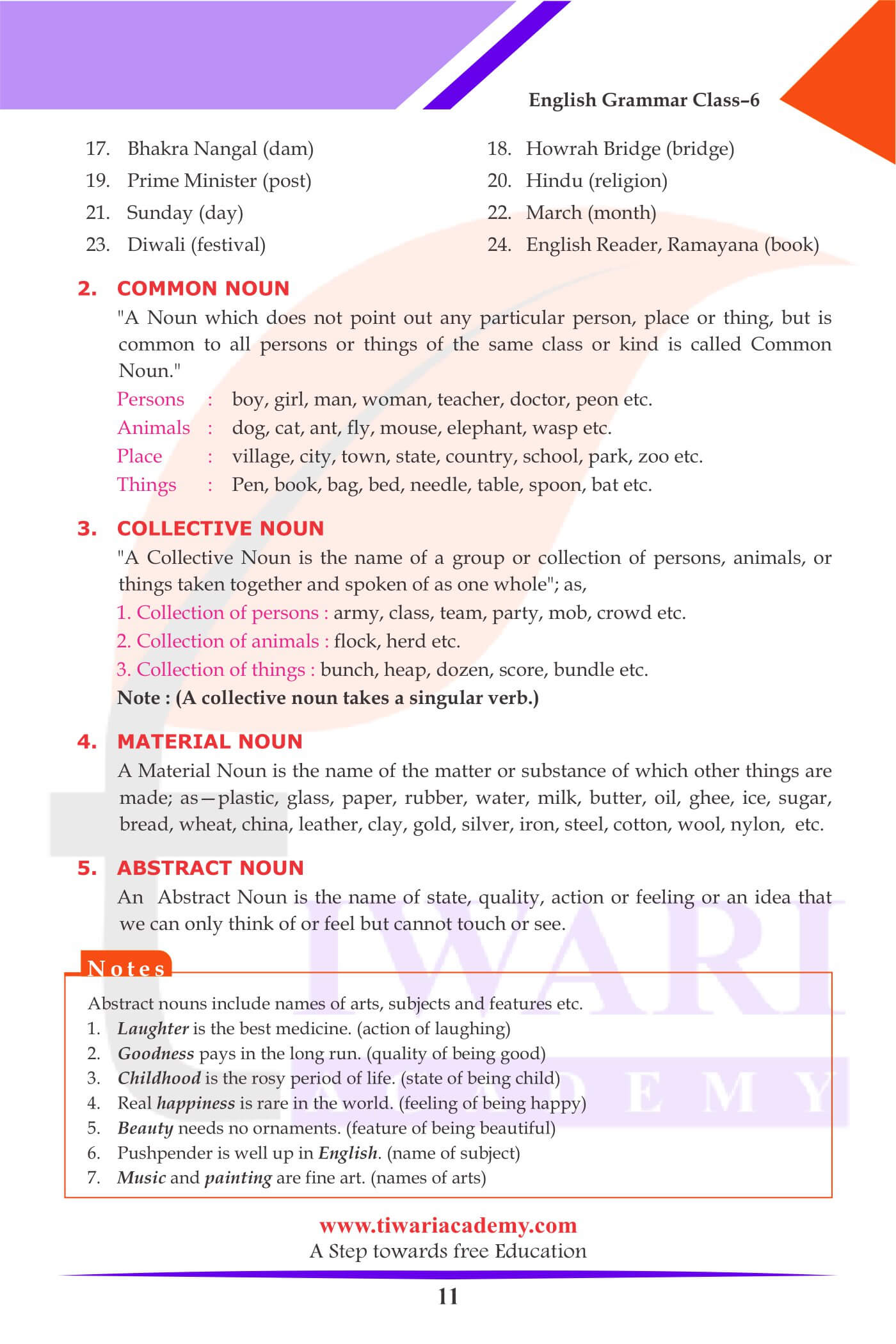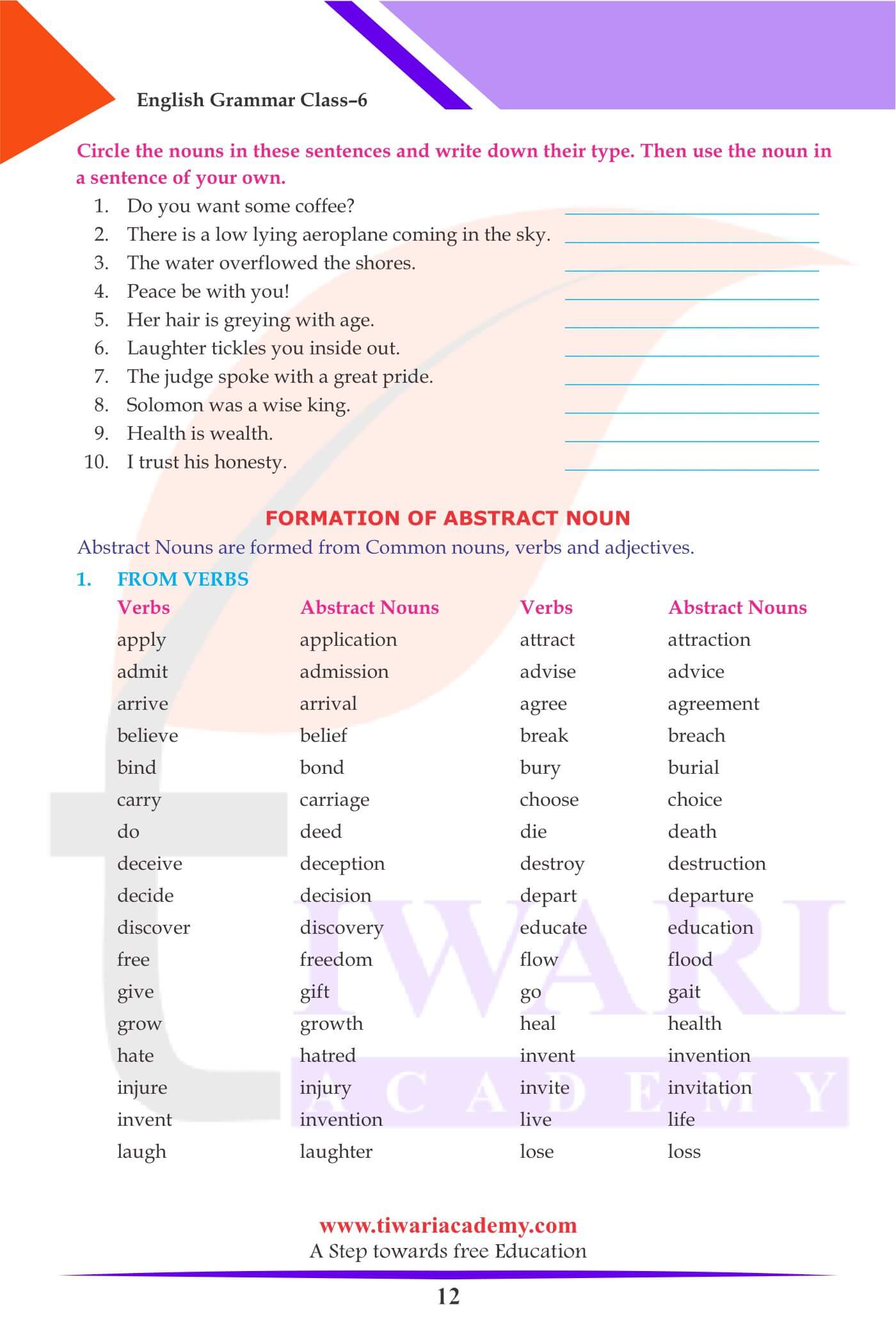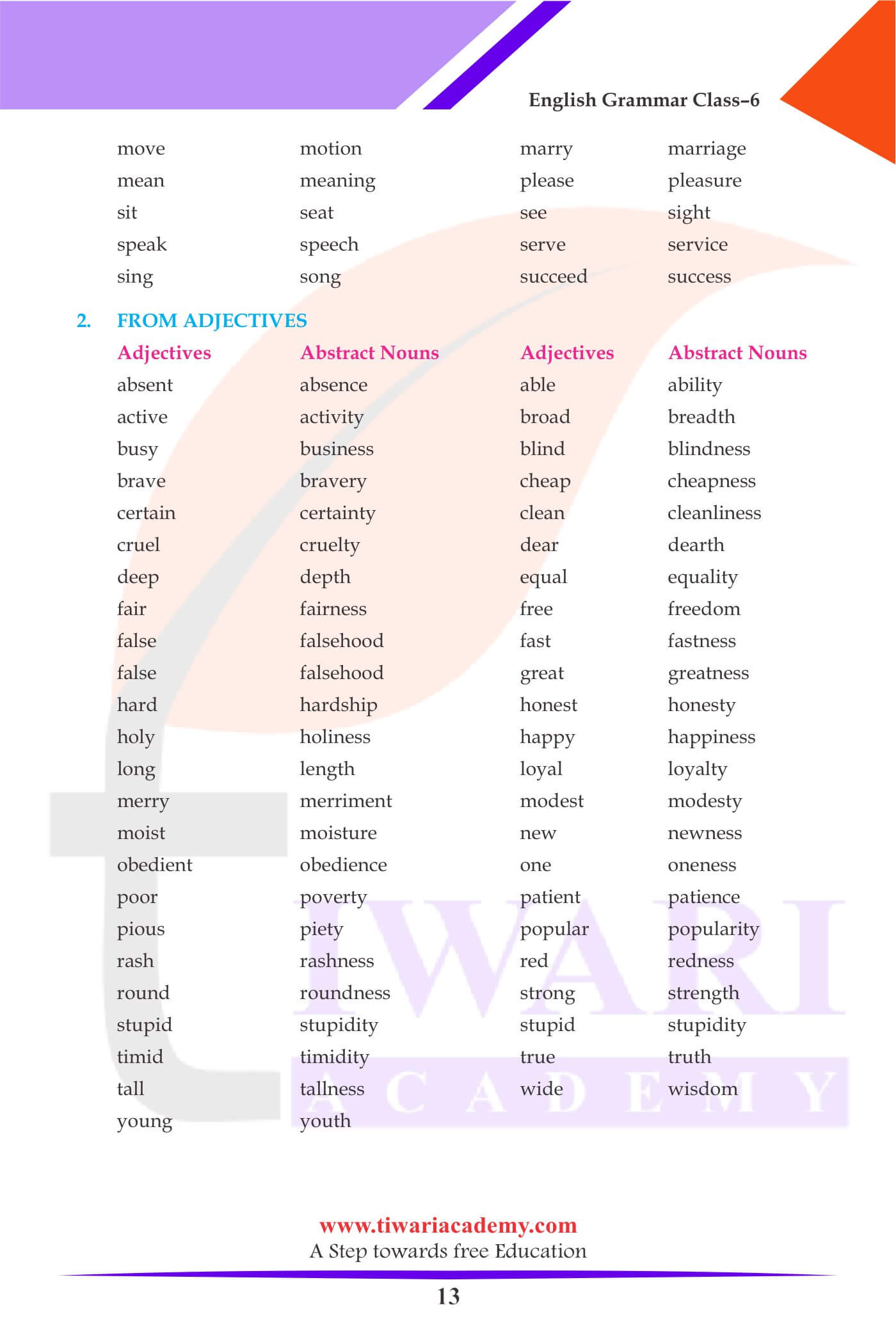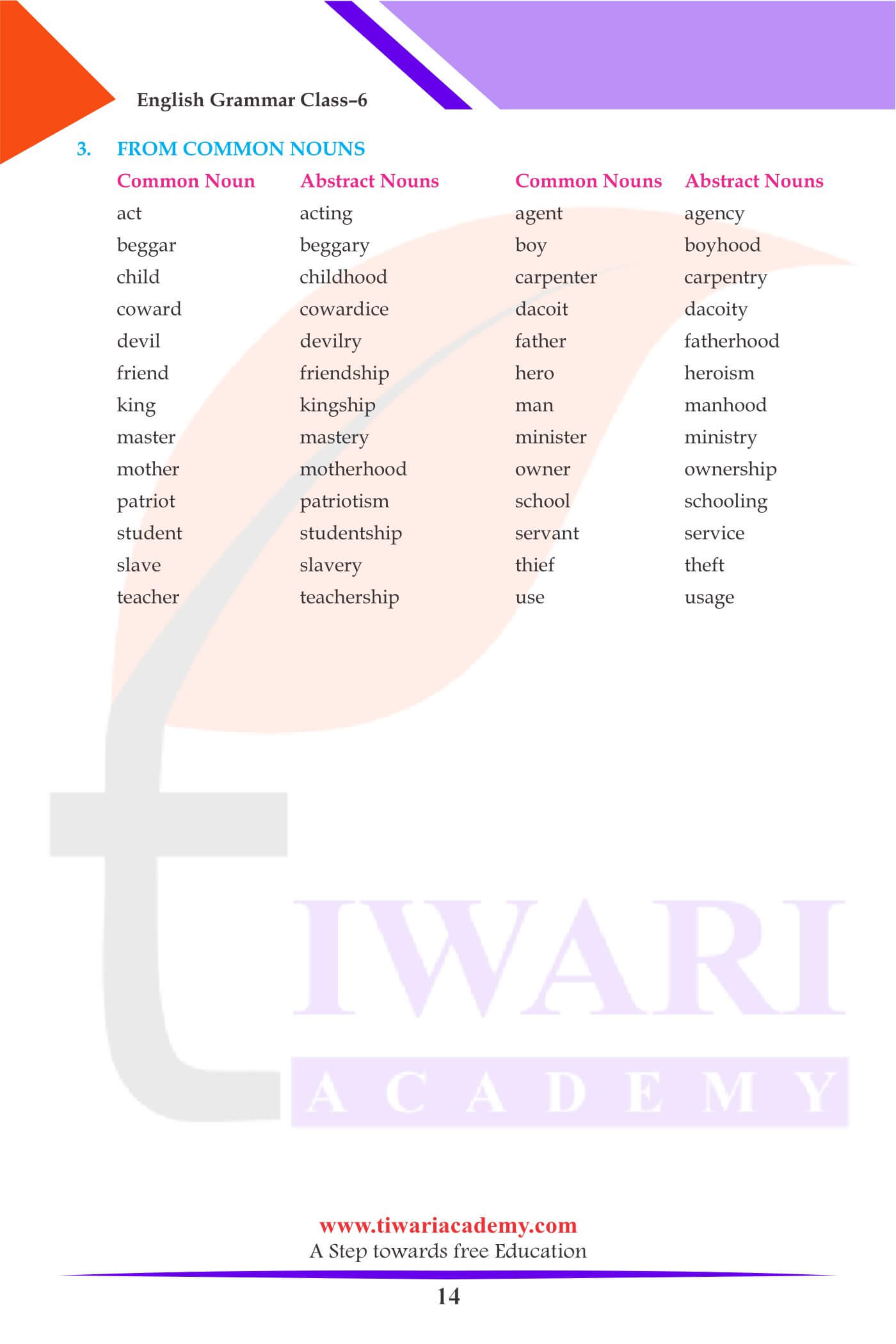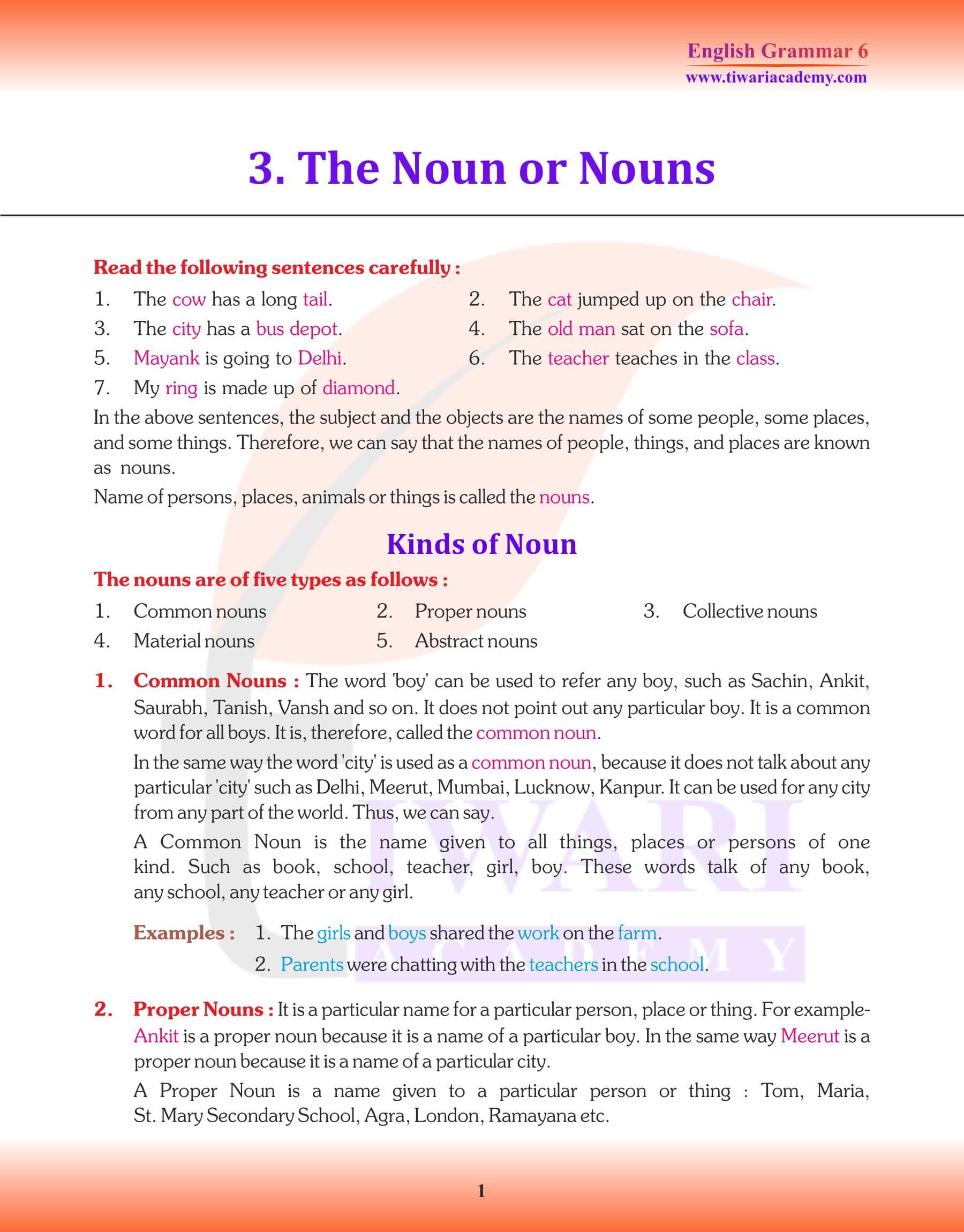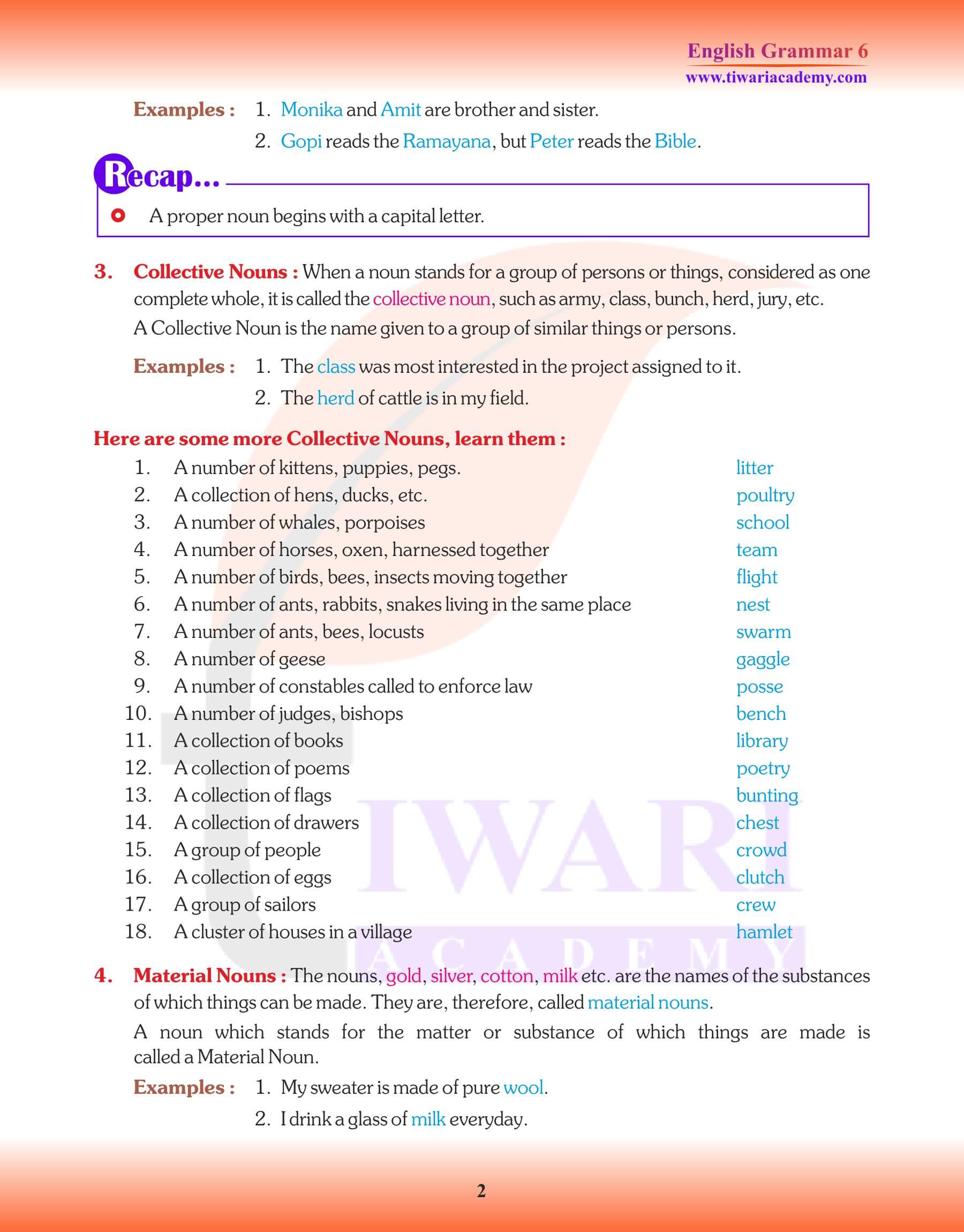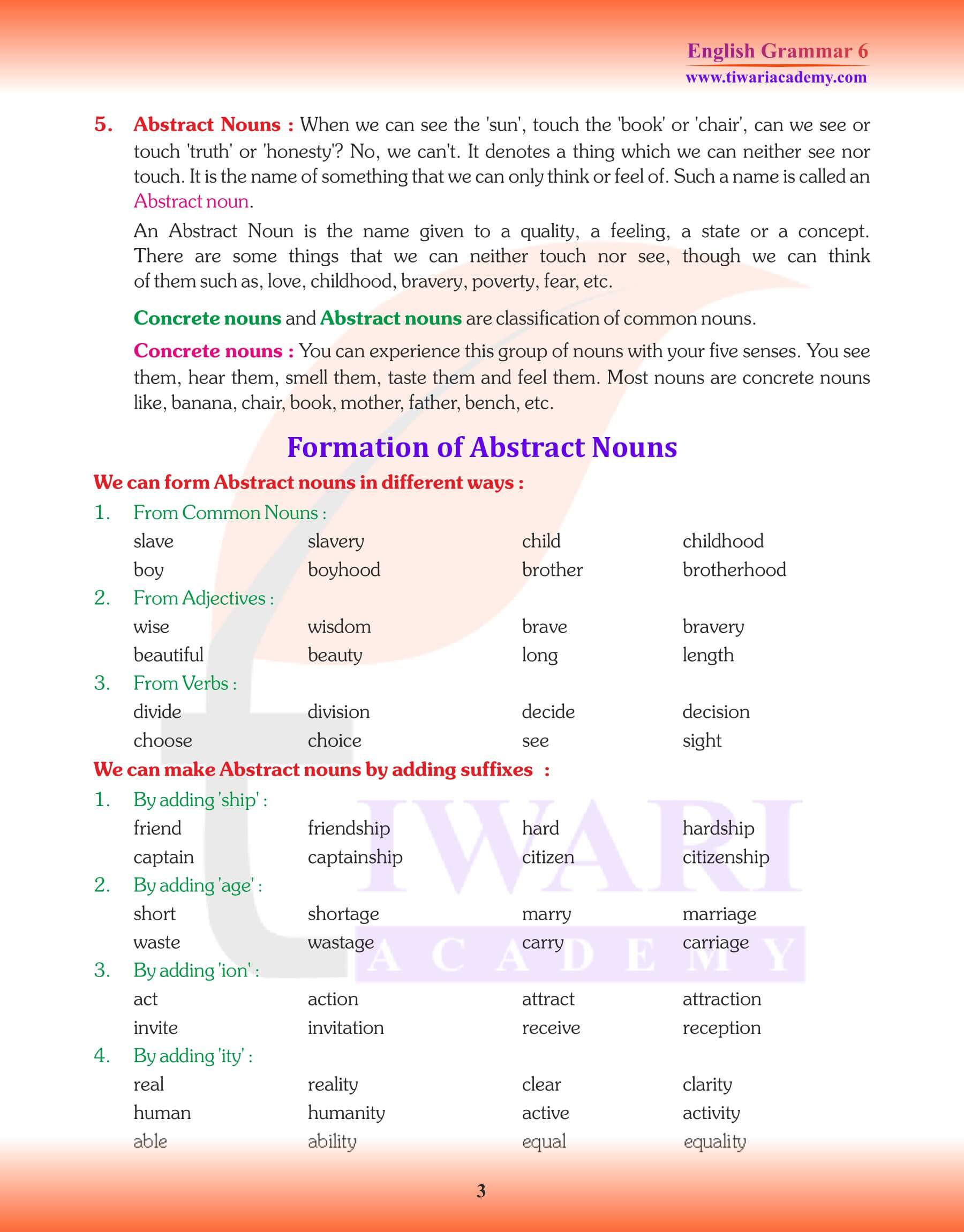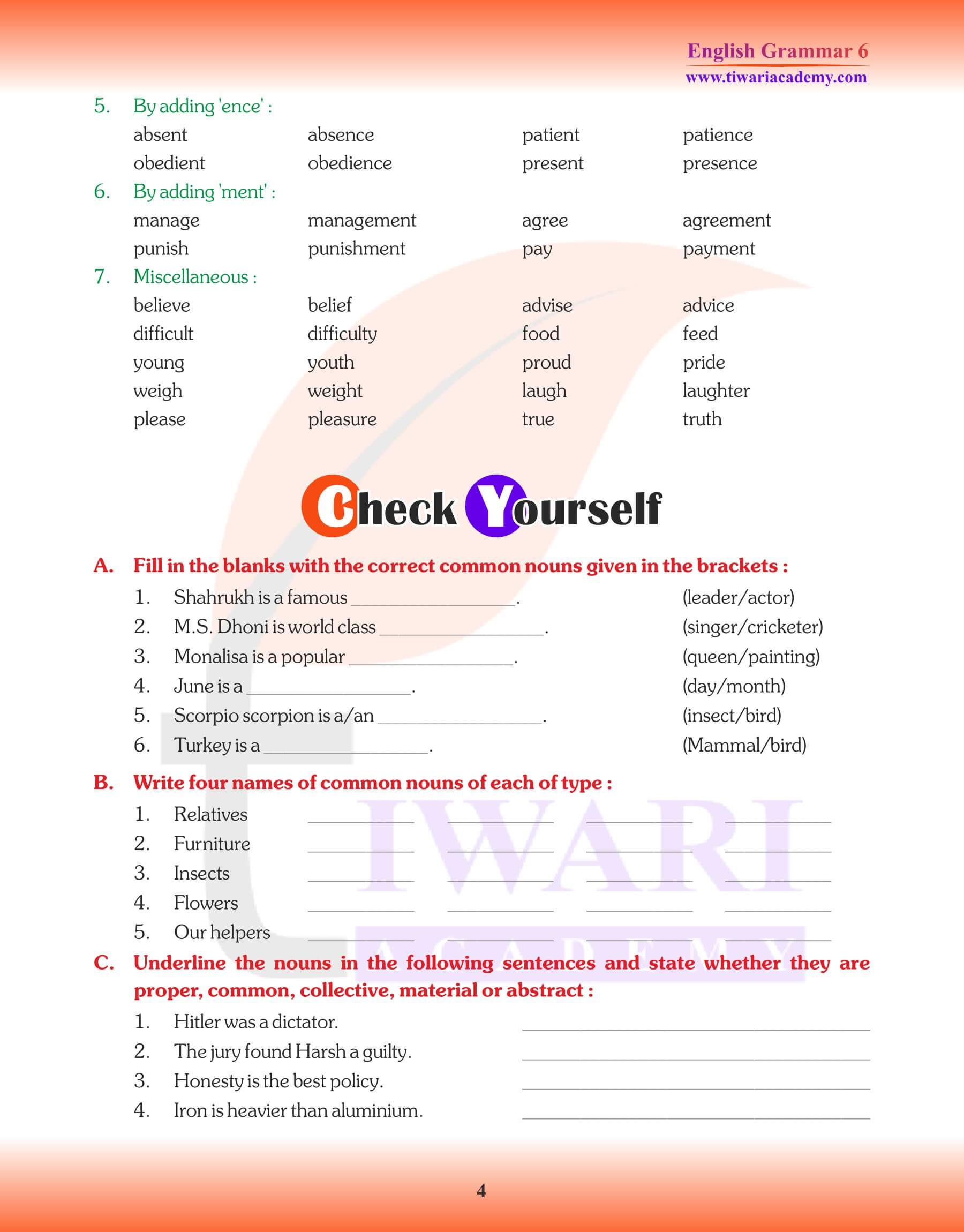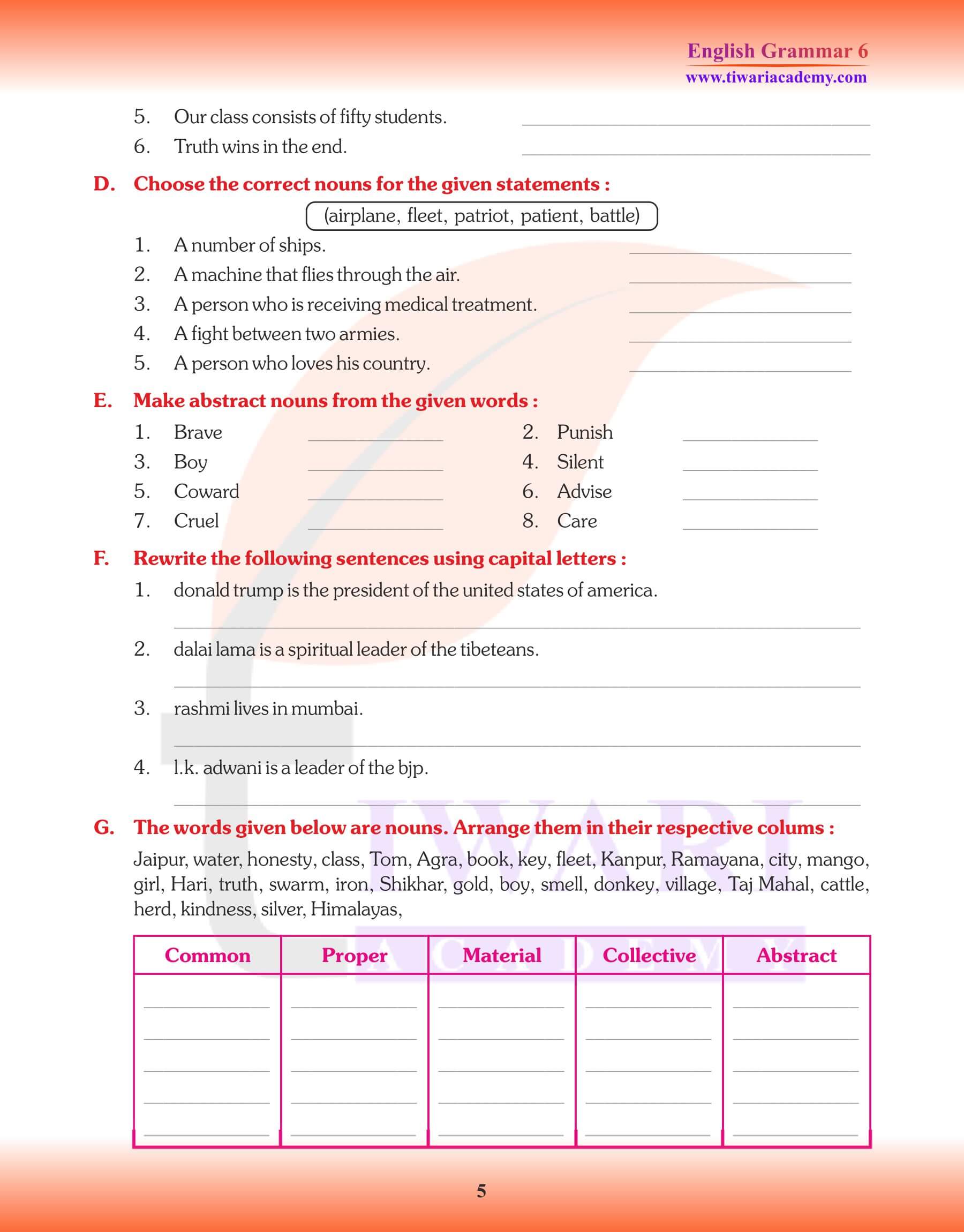Class 6 English Grammar Chapter 3: Nouns, which is a naming word. They occupy space also. So, they can be easily touched. According to Wren and Martin– “A Noun is a word used as the name of a person, animal, place, or thing”. Besides, there are certain names that point to abstract things. Such things have no material bodies. They can be only felt or thought of.
Understanding Nouns: The Foundation of English Grammar
For Class 6 English Grammar enthusiasts, Chapter 3 delves into one of the most fundamental aspects: Nouns. Nouns are essentially naming words, serving as labels for a vast array of entities in our world. They stand as the cornerstone of sentences, providing context and meaning to our statements. Famous grammarians Wren and Martin define a noun as a word utilized to denote the name of a person, animal, place, or thing. This broad definition encapsulates the myriad of tangible entities that can be named, touched, and interacted with, highlighting the importance of nouns in everyday communication.
Class 6 English Grammar Chapter 3 Noun Video
| Class: 6 | English Grammar |
| Chatper: 3 | The Noun or Nouns |
| Study Material: | Textbook and Revision Notes |
| Session: | 2024-25 |
Class 6 English Grammar Chapter 3: The Noun is given below to study free without any login. He the description of Nouns and its kinds are given with suitable examples.
Distinguishing Between Tangible and Abstract Nouns
While many nouns refer to concrete objects, there’s a fascinating subset that delves into the intangible: abstract nouns. Unlike their tangible counterparts, which occupy physical space and can be directly perceived through our senses, abstract nouns represent concepts that lack a physical form. These nouns don’t refer to things that can be touched, seen, or held. Instead, they denote ideas, feelings, qualities, or concepts. Abstract nouns encapsulate the emotions, beliefs, and philosophies that shape our lives, bringing depth and emotion to our language.
The Noun
All the things in the world fall into two classes:
- Things that have material bodies. Such things are called concrete things.
- Things that have no material bodies. Such things are called abstract things.
Exploring the Nuances of Nouns in English
English grammar offers a rich tapestry of nouns, each with its own significance. Beyond merely naming entities, nouns help in painting vivid pictures, evoking emotions, and conveying intricate ideas. For instance, while a noun like “mountain” presents a tangible entity, words like “freedom” or “joy” touch upon feelings and concepts that are universally understood yet intangible. Recognizing and differentiating between these types of nouns enriches our understanding and appreciation of language, allowing us to communicate with greater clarity and depth.
Accordingly, nouns also fall into two main classes: 1. Concrete Nouns 2. Abstract Nouns. Kinds of Concrete Nouns
- Proper
- Common
- Material
- Collective
1. The Proper Noun
A Proper Noun is the name of a particular person, place or thing. When you write a proper noun, remember to begin it with a capital letter.
Examples:
1. Pushpender (name)
2. Indira Gandhi (name/leader)
3. Delhi (city)
4. Aurangabad (village/town)
5. The Red Fort (Historical building)
6. Taj Express (train)
7. Pushpak (aeroplane)
8. Haryana Roadways (bus)
9. Vikrant (ship)
10. The G.T. Road (road)
2. The Common Noun
A Noun which does not point out any particular person, place or thing, but is common to all persons or things of the same class or kind is called Common Noun.
| Persons: | Boy, girl, man, woman, teacher, doctor, peon etc. |
| Animals: | Dog, cat, ant, fly, mouse, elephant, wasp etc. |
| Place: | Village, city, town, state, country, school, park, zoo etc. |
| Things: | Pen, book, bag, bed, needle, table, spoon, bat etc. |
3. The Collective Noun
A Collective Noun is the name of a group or collection of persons, animals, or things taken together and spoken of as one whole.
| Collection of persons: | Army, class, team, party, mob, crowd etc. |
| Collection of animals: | Flock, herd etc. |
| Collection of things: | Bunch, heap, dozen, score, bundle etc. |
Class 6 English Grammar Chapter 3 Extra Questions
What is a Noun?
A Noun is a word used as the name of a person, animal, place, or thing.
How do we form an Abstract Noun?
Abstract Nouns are formed from Common nouns, verbs and adjectives.
How many Kinds of Concrete Nouns are there?
There are following Concrete Nouns:
1. Proper
2. Common
3. Material
4. Collective
What are the two main classes of Noun?
The two main classes of Noun are 1. Concrete Nouns and 2. Abstract Nouns.
4. The Material Noun
A Material Noun is the name of the matter or substance of which other things are made; as—plastic, glass, paper, rubber, water, milk, butter, oil, ghee, ice, sugar, bread, wheat, china, leather, clay, gold, silver, iron, steel, cotton, wool, nylon, etc.
5. The Abstract Noun
An Abstract Noun is the name of state, quality, action or feeling or an idea that we can only think of or feel but cannot touch or see. Abstract nouns include names of arts, subjects and features etc.
- Laughter is the best medicine. (action of laughing)
- Goodness pays in the long run. (quality of being good)
- Childhood is the rosy period of life. (state of being child)
- Real happiness is rare in the world. (feeling of being happy)
- Beauty needs no ornaments. (feature of being beautiful)
- Pushpender is well up in English. (name of subject)
- Music and painting are fine art. (names of arts)
